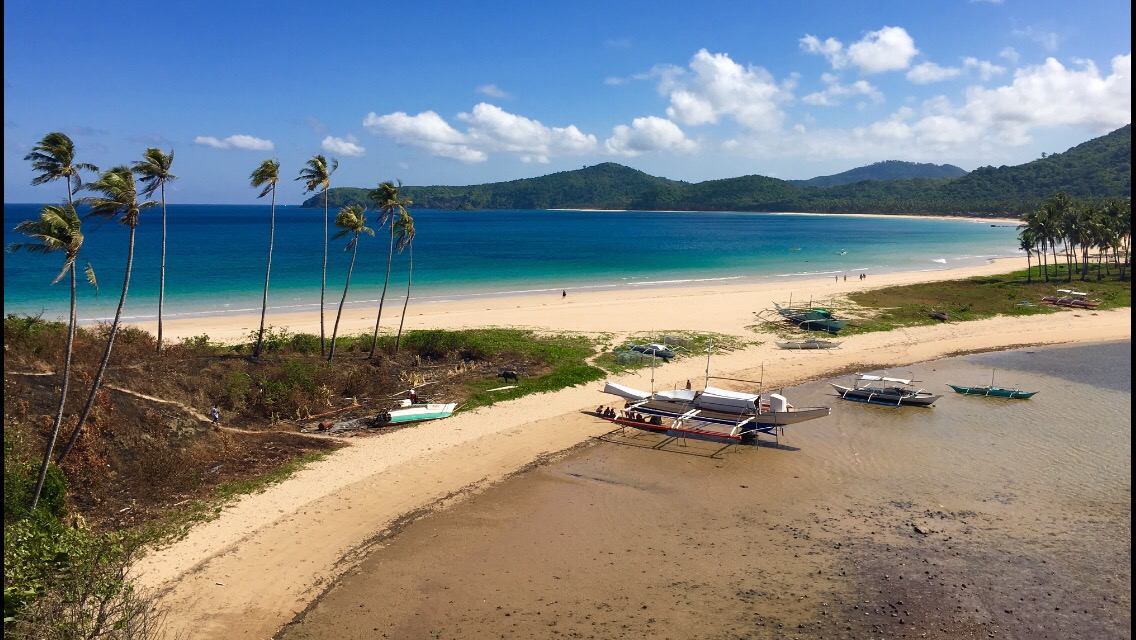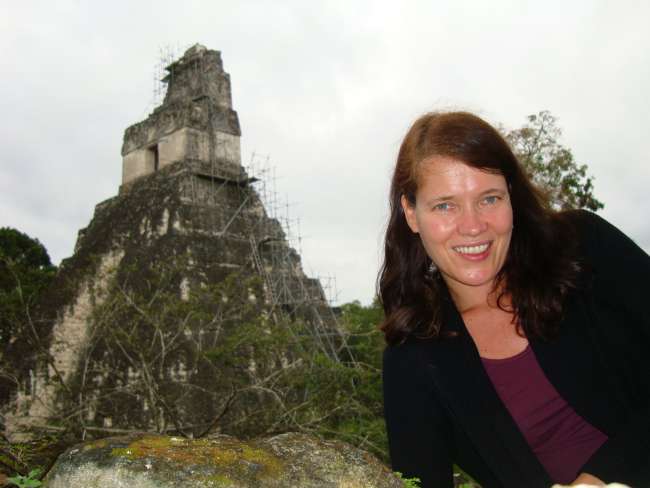
allcontinentsinonelife
vakantio.de/allcontinentsinonelife
Nepal 2015: the Kathmandu Valley
Ebimisami: 10.08.2016
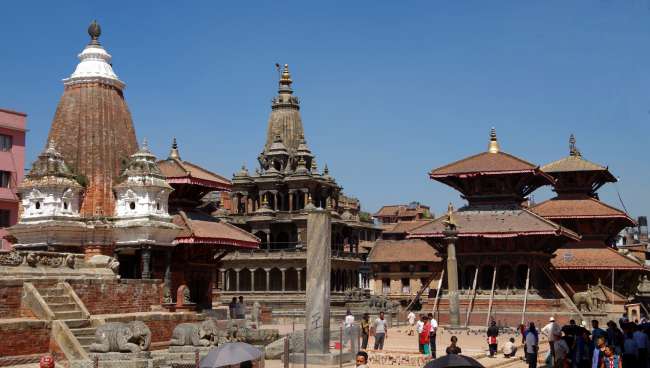
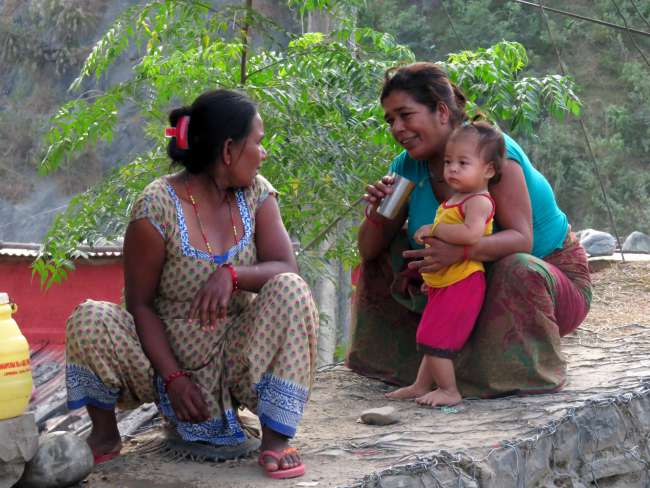
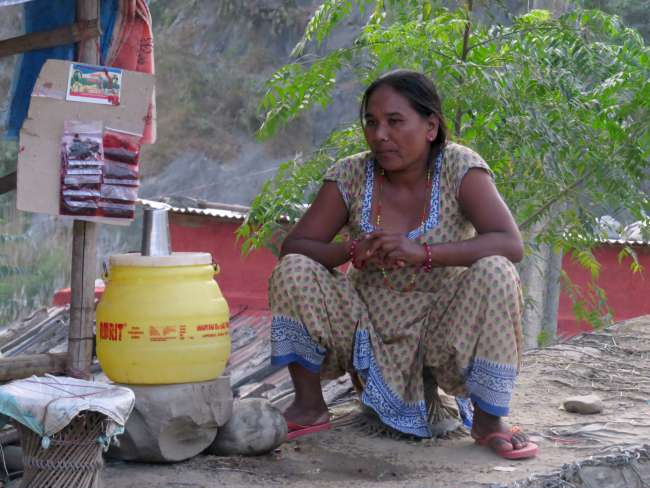
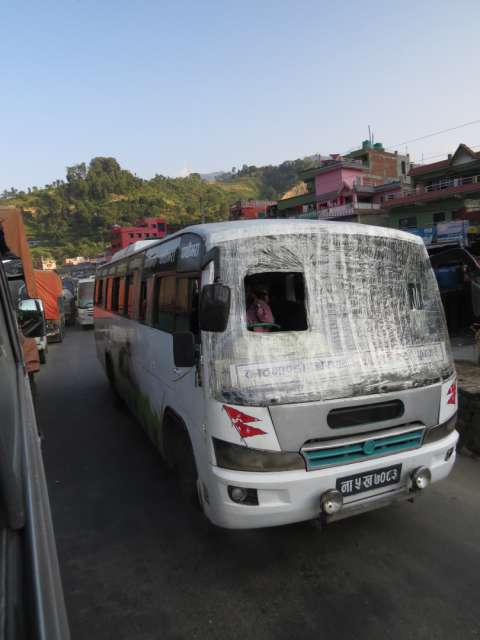
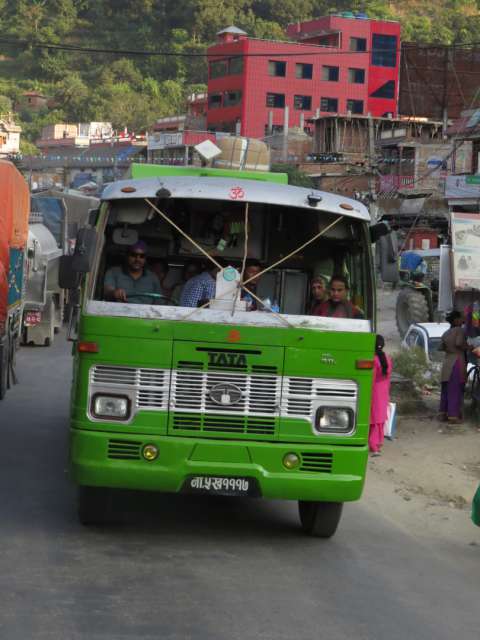
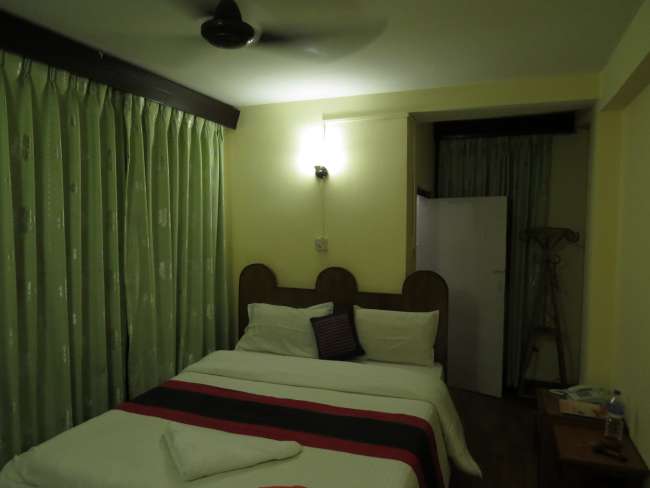
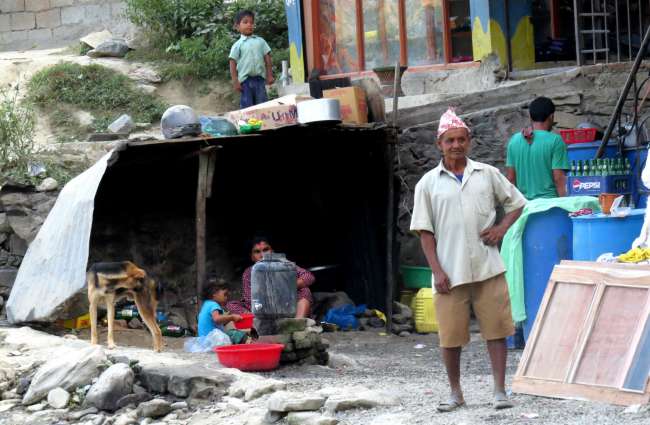
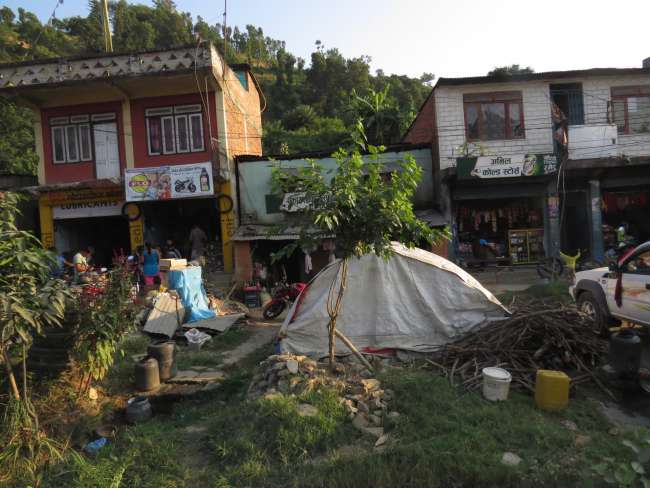
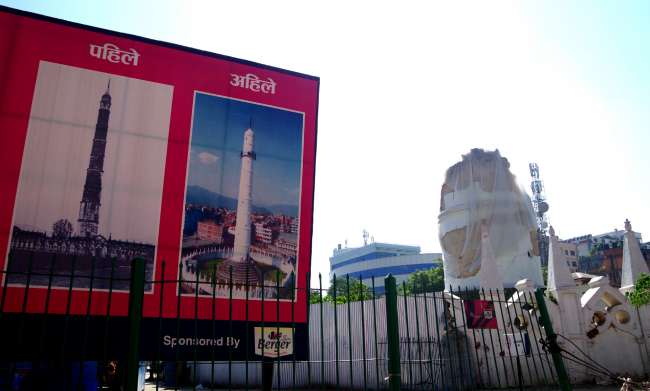
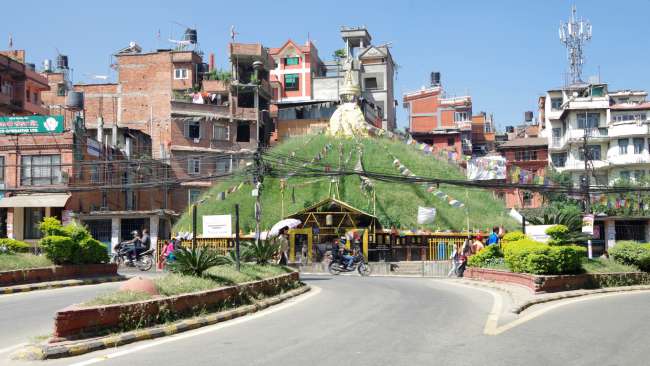
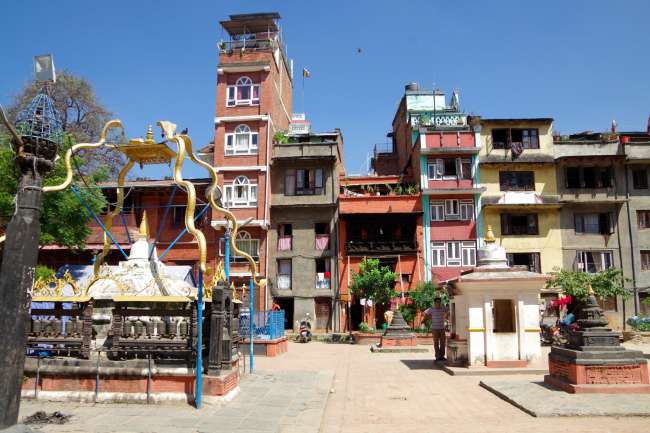
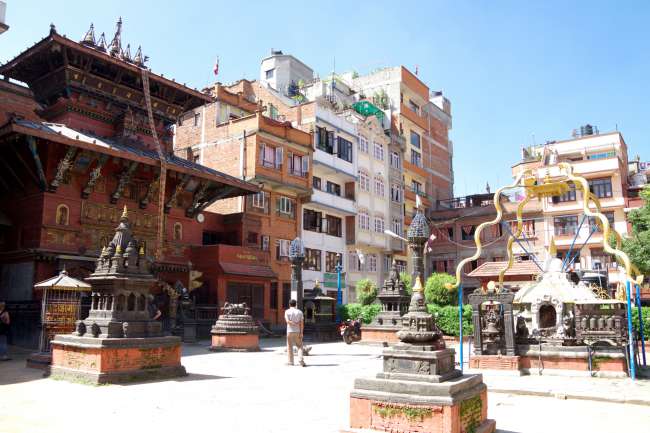
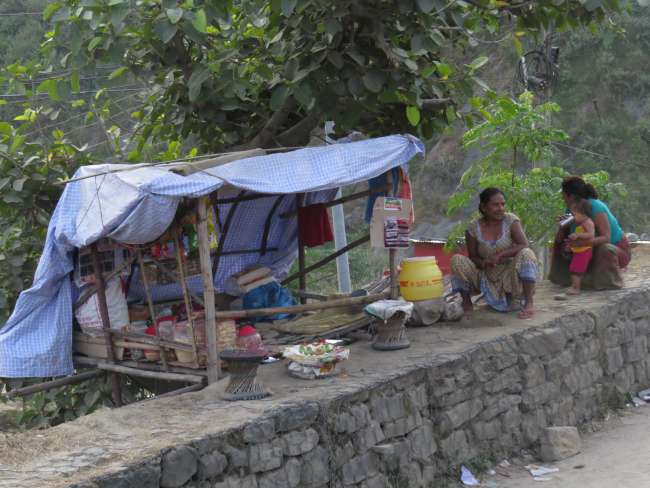
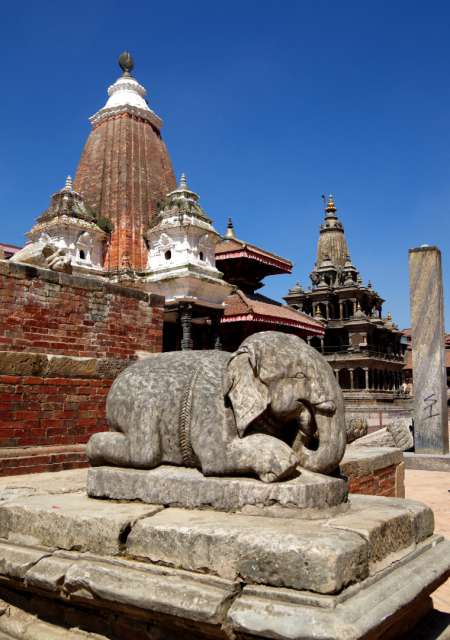
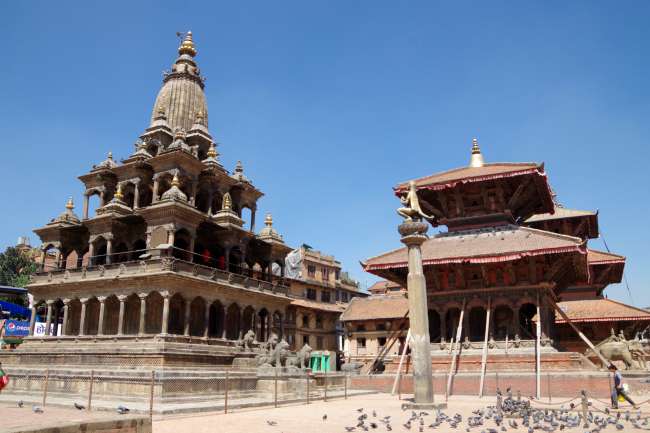
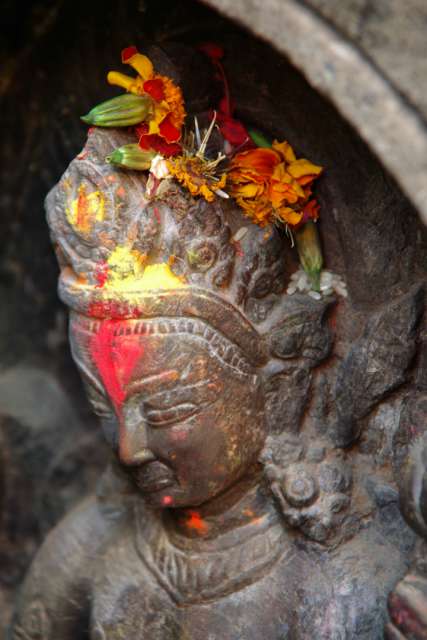
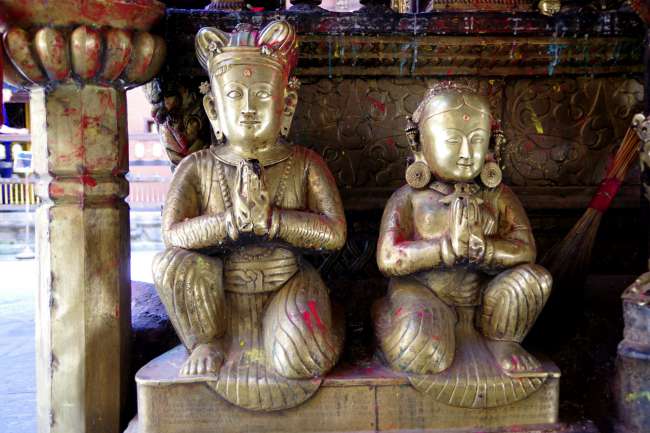
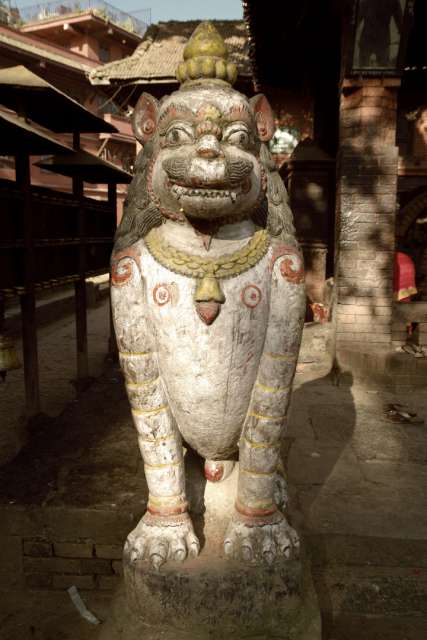
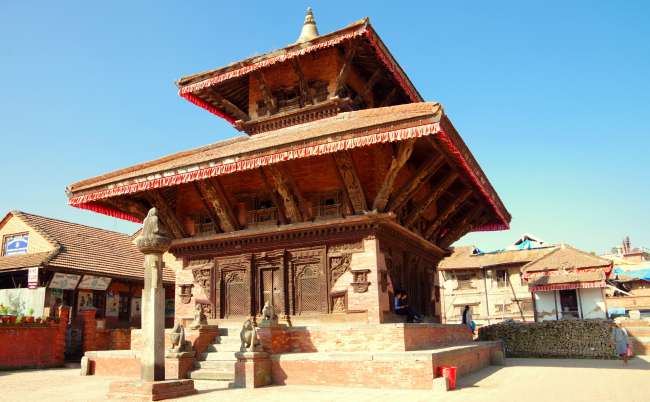
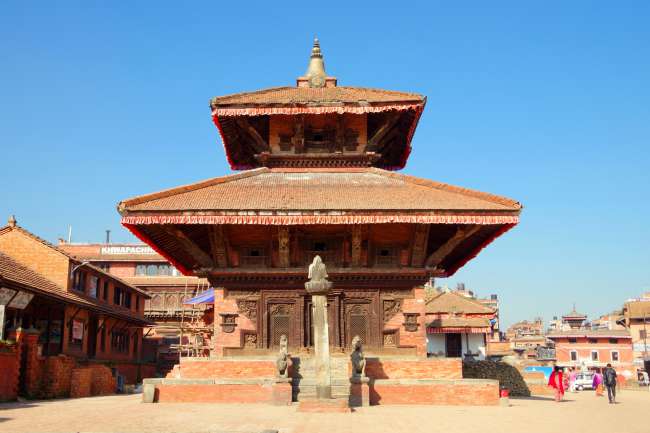
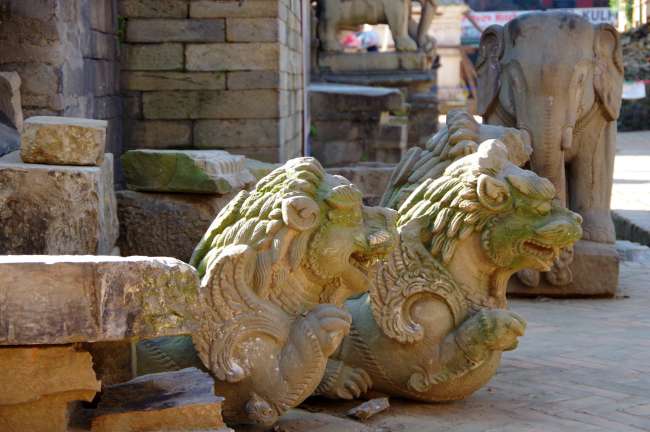
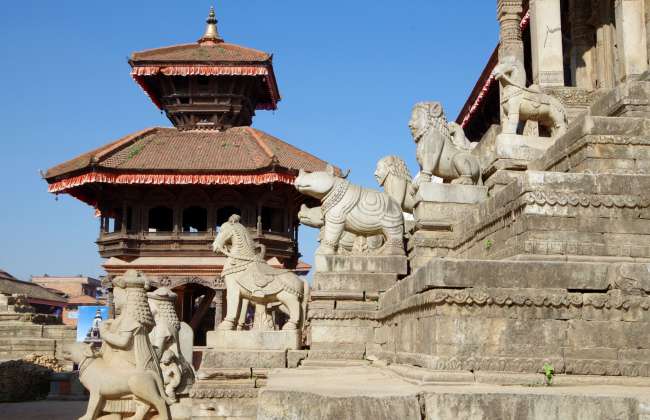
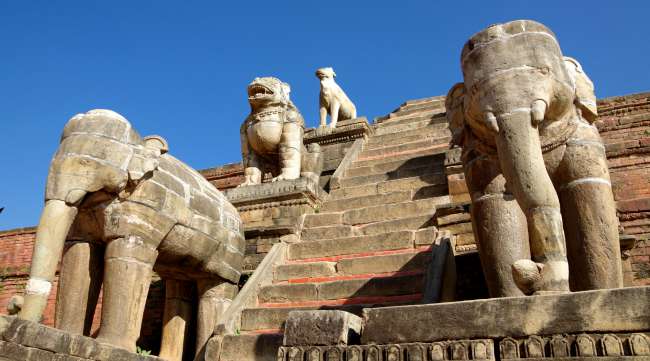
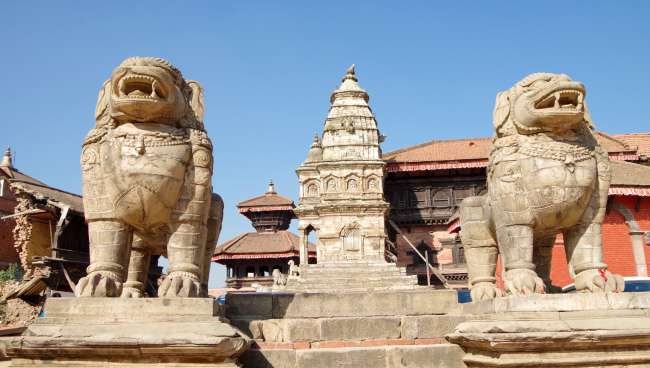
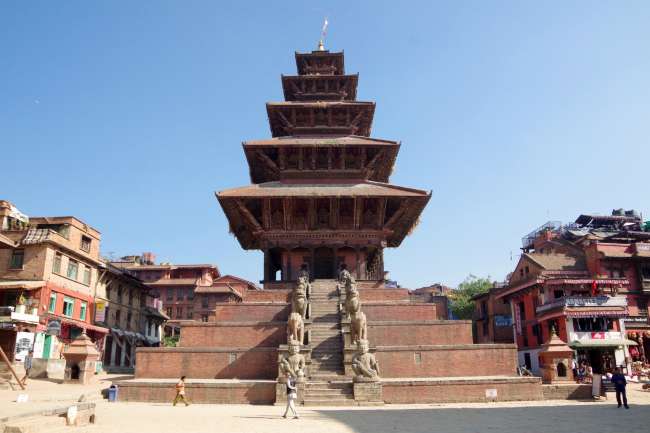
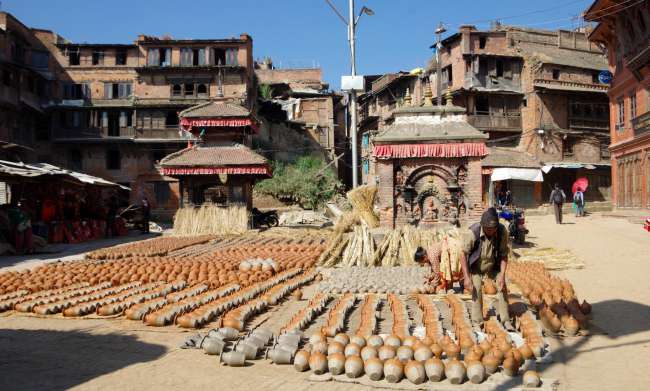
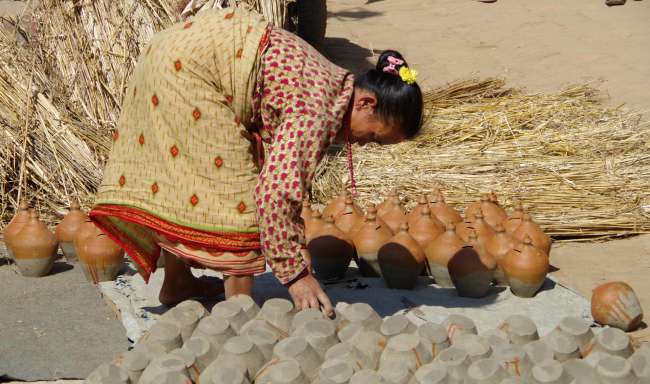
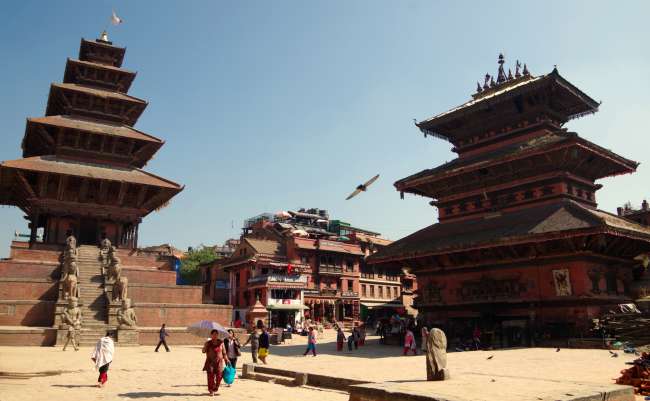
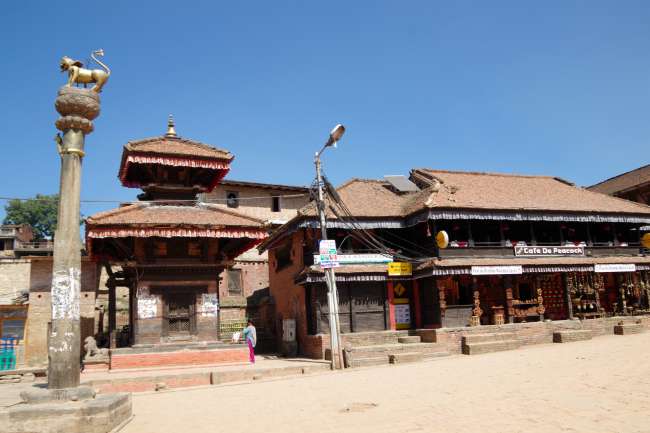
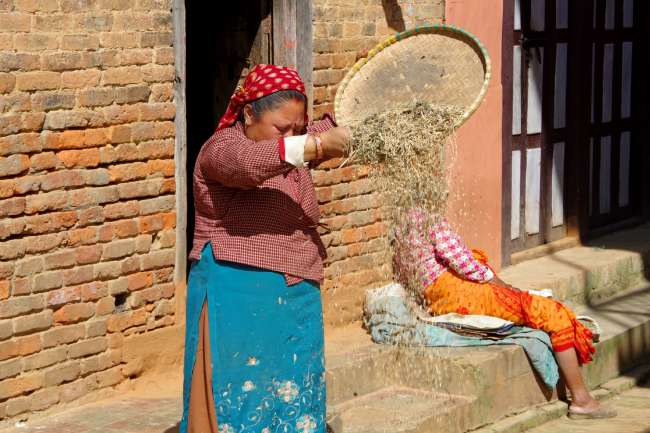
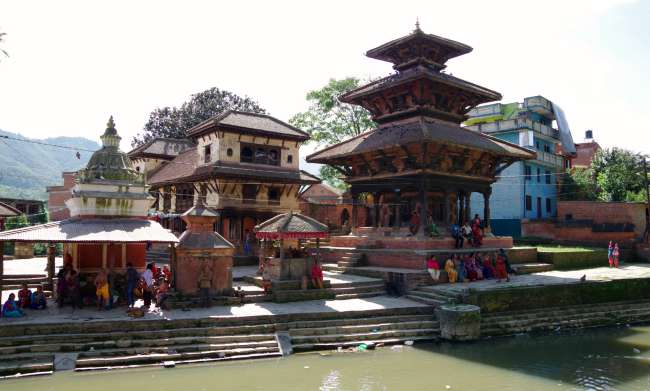
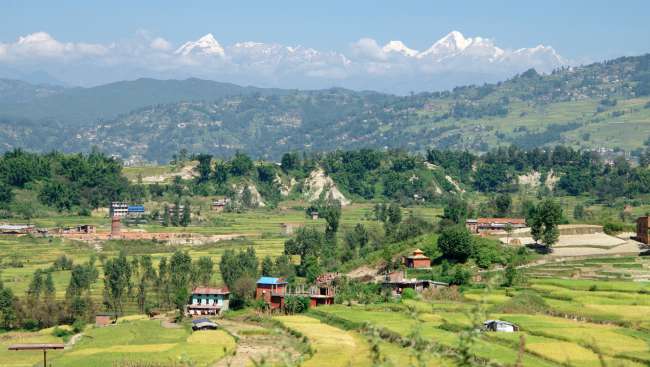
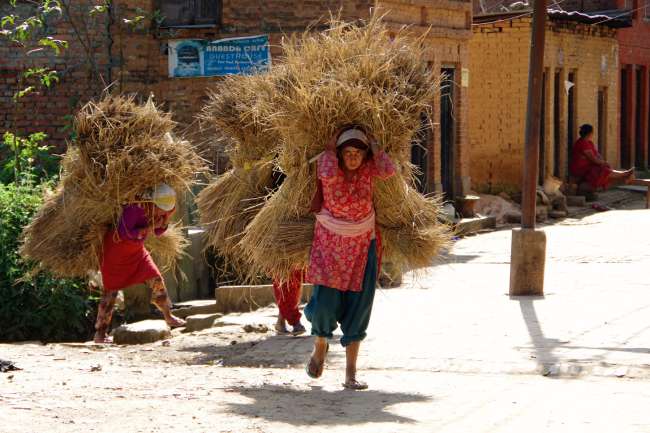
Abonnez-vous na Bulletin ya Sango
Our time in Nepal was coming to an end. After wonderful days in Kathmandu, bathing elephants in Chitwan, and relaxing in the emerald green lake of Pokhara, we spent the last few days back in Kathmandu with the focus on getting to know the other two royal cities (Patan/ Lalitpur and Bhaktapur). We also planned a stop in the undamaged Newar town of Panauti, which had withstood all earthquakes so far.
But in order to get back to Kathmandu at all, we had to brave the long traffic jams and endure a lot of sitting on a rickety public bus. The journey took us 12 hours, with more standing than sitting. The long traffic jams were caused by the overcrowded petrol stations, with cars lined up for hundreds of meters on the side of the road, waiting for promising diesel. This meant that the emergency lane was blocked and everyone had to struggle on a single lane. However, this slow way of traveling allowed us to experience the country, its people, and its culture. I was amazed by the old buses of the Indian brand TATA in various stages of "decomposition"... and still running on the road.

Slides also work

or sometimes nothing at all
The misery after the big earthquake was naturally even more present in the nests by the wayside, with UNHCR and the German Red Cross tents clearly visible.

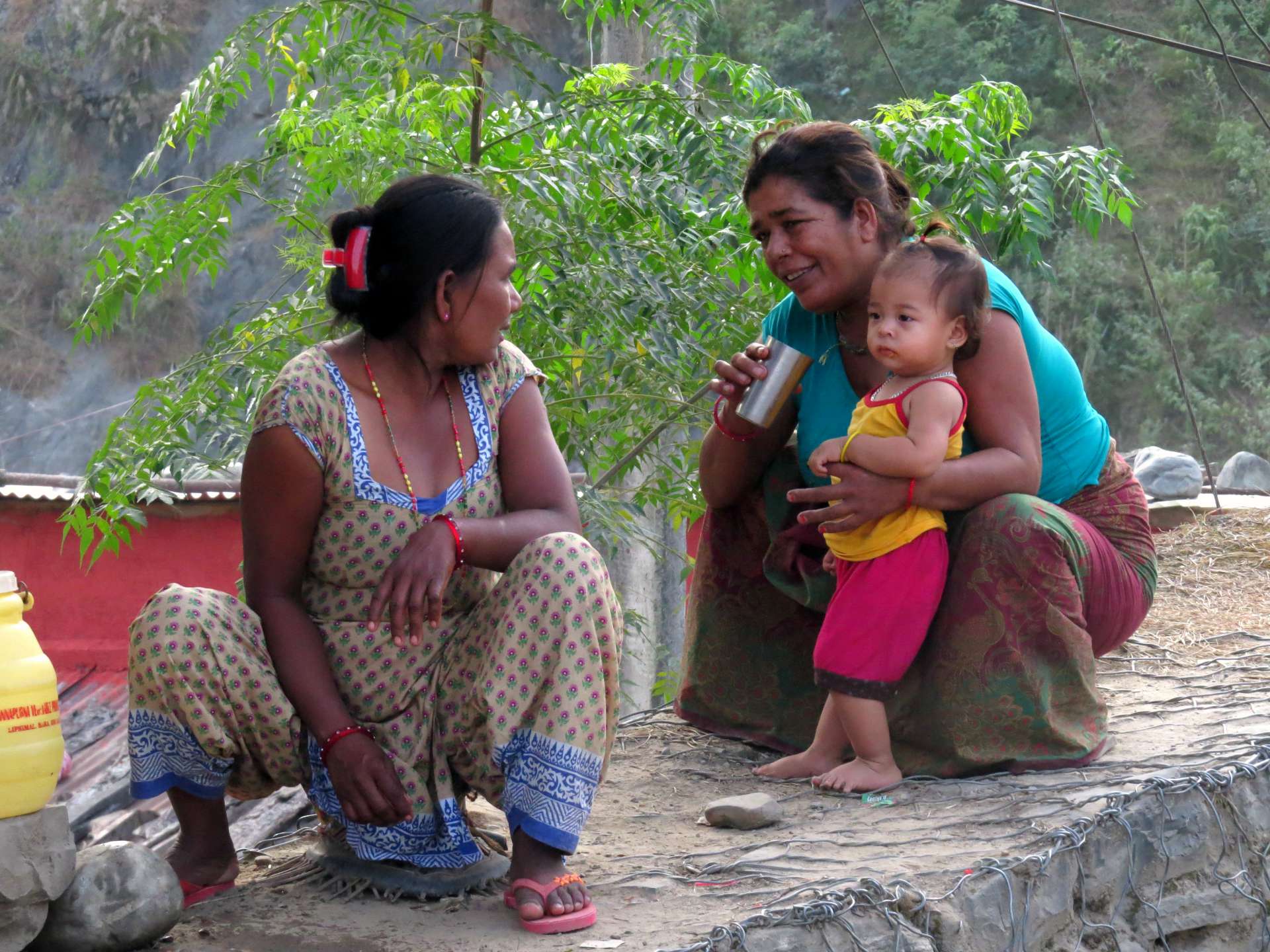
By late evening, we had finally made it, "welcome to Kathmandu". We stayed in Thamel again, at the Pilgrim's Guesthouse of the old guard. Our room was exactly as I was used to from SOA.... but at €8 including breakfast, it was incredibly cheap and therefore highly recommended.

After a quick dinner, we went to bed, as we wanted to start our journey into the big wide world well-rested the next day.
Patan/ Lalitpur
Getting a taxi for five people is already incredibly difficult in normal times, let alone during an embargo. So we walked through the chaos of Kathmandu and unexpectedly passed by the Bhimsen Tower, or what was left of it. Each of us had the images in our head of the days after the earthquake when the pictures of the collapsed tower went around the world - whether the ruin will be rebuilt, no one can confirm.

We saw a lot of damage on the way to Patan, the Kathmandu Corner got hit harder than Thamel.
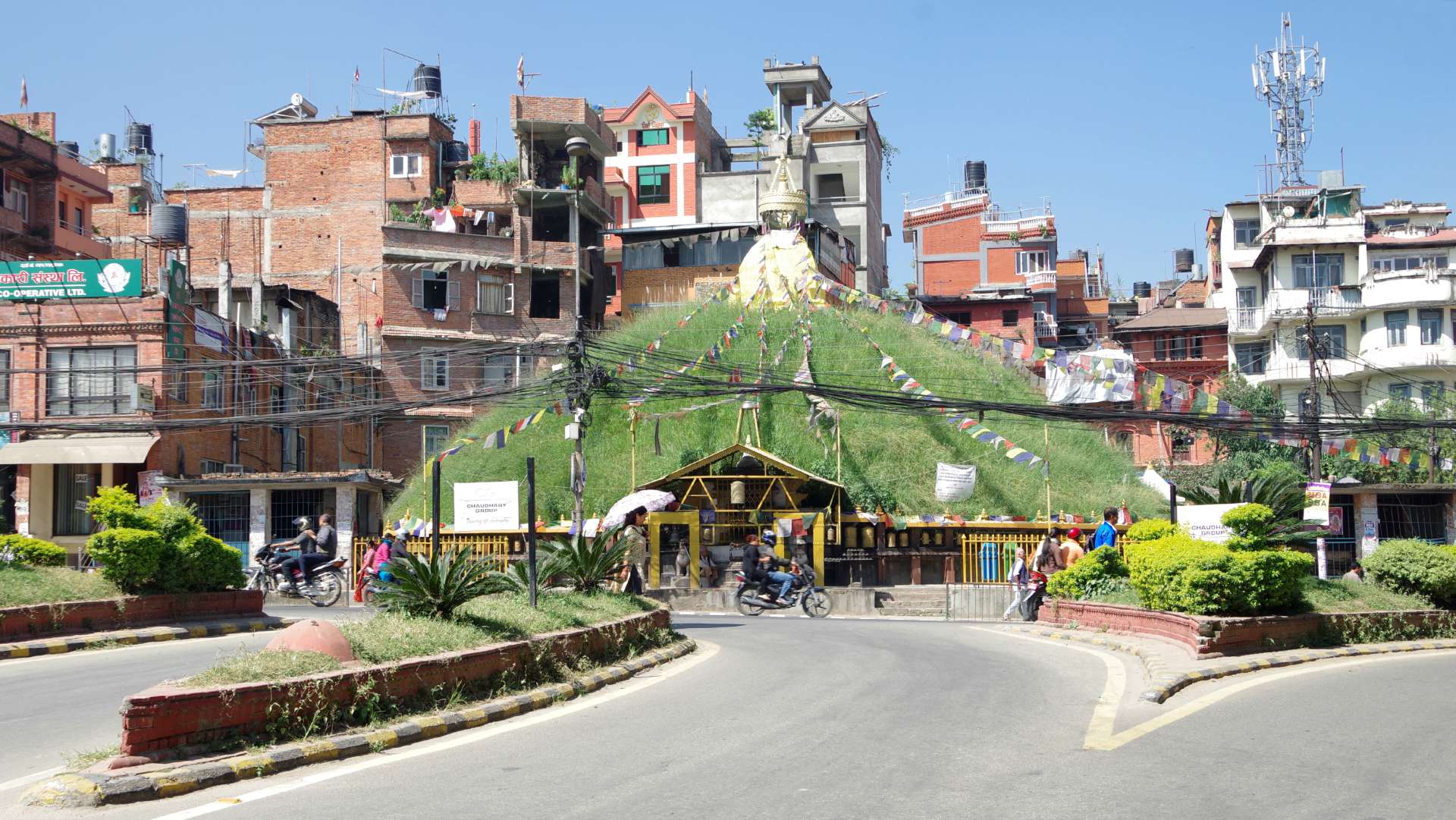
The stupa symbolizes one of the four cardinal directions and the road to Patan
Patan, also known as Lalitpur, still impressed us with its beauty and grandeur.
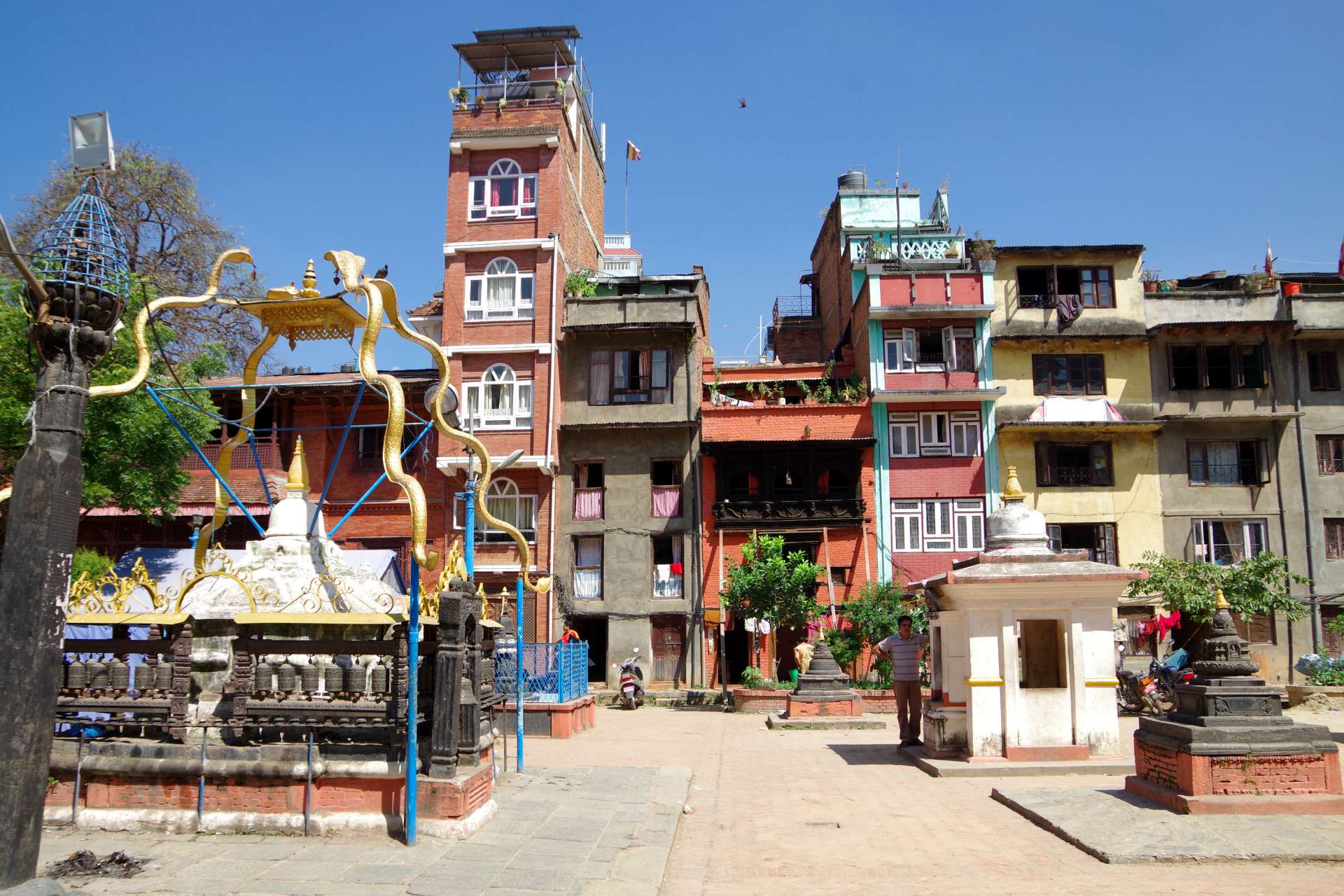
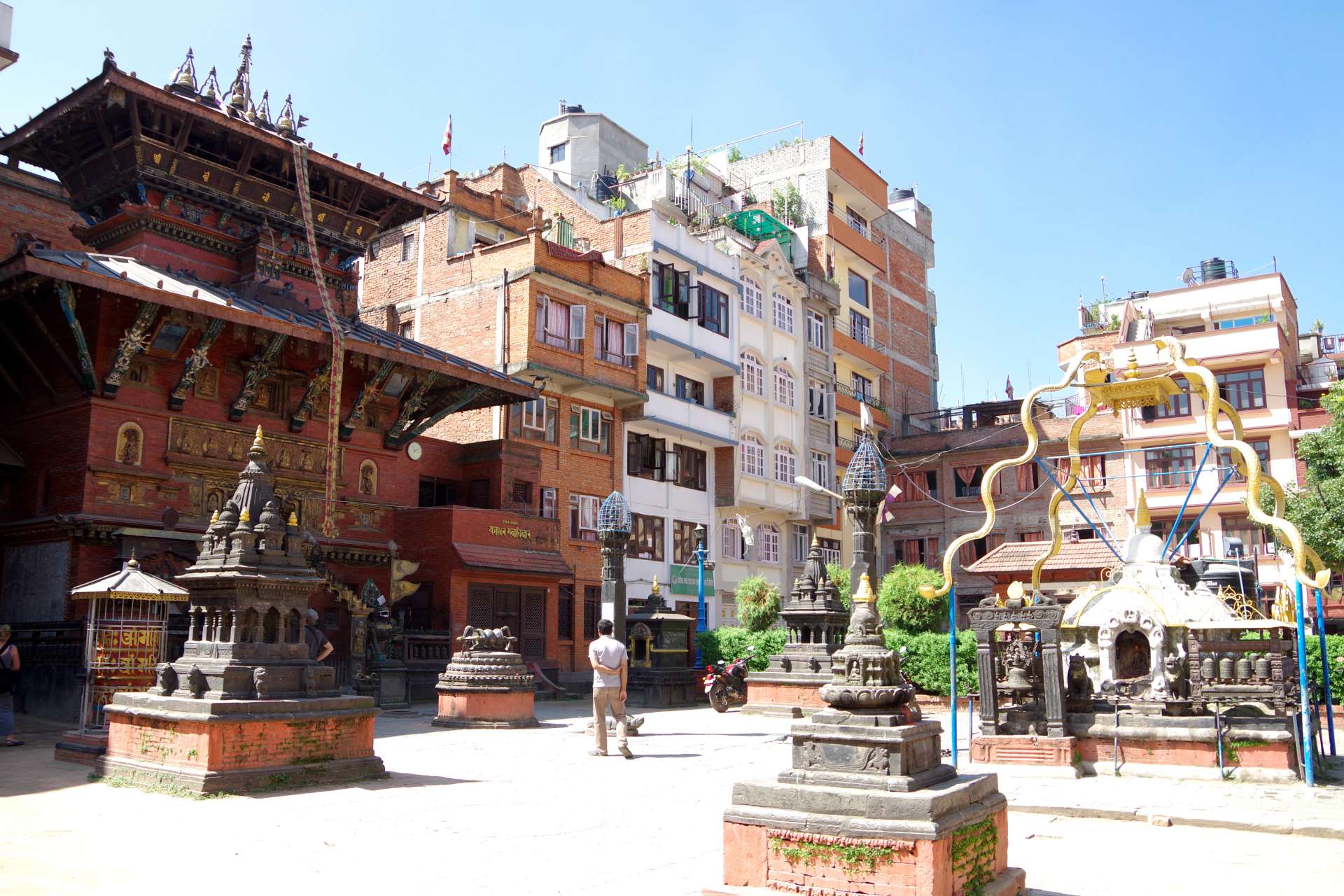
The Durbar Square seemed architecturally more structured than the square in Kathmandu, even though the damages were just as prominent. We were interviewed by a group of archaeologists who wanted to know if we had planned our trip to Nepal before or after the earthquake. We had already planned it in 2014 and nothing could stop us, especially not overturned stones.
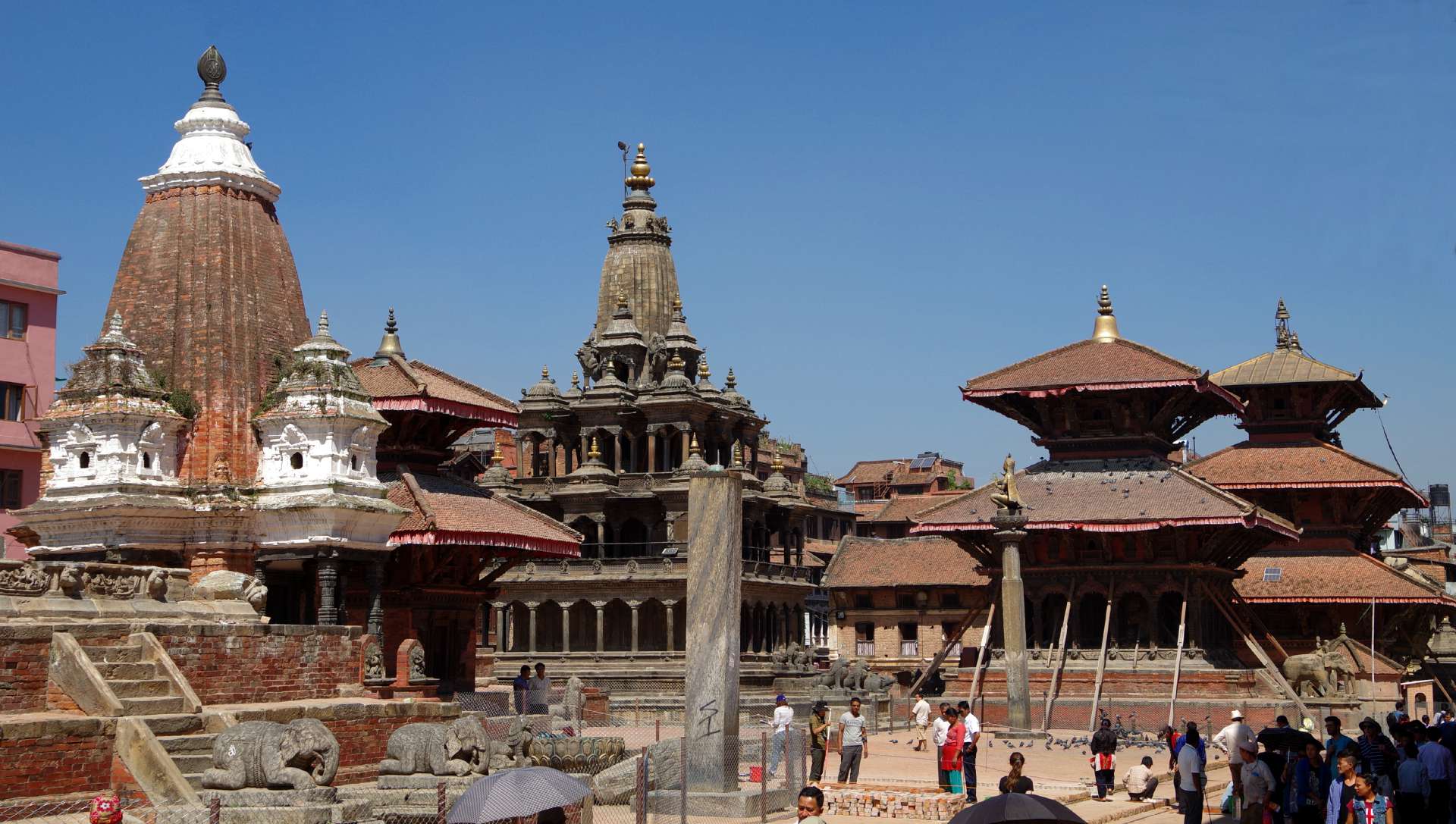


The special highlight of Patan, along with the Durbar Square, was the Golden Temple. It simply took our breath away, wow. Critics could of course say "tacky, jumbled up Hindu trinkets"... but we found the little temple overwhelming and so different from what we had seen in China or Tibet.
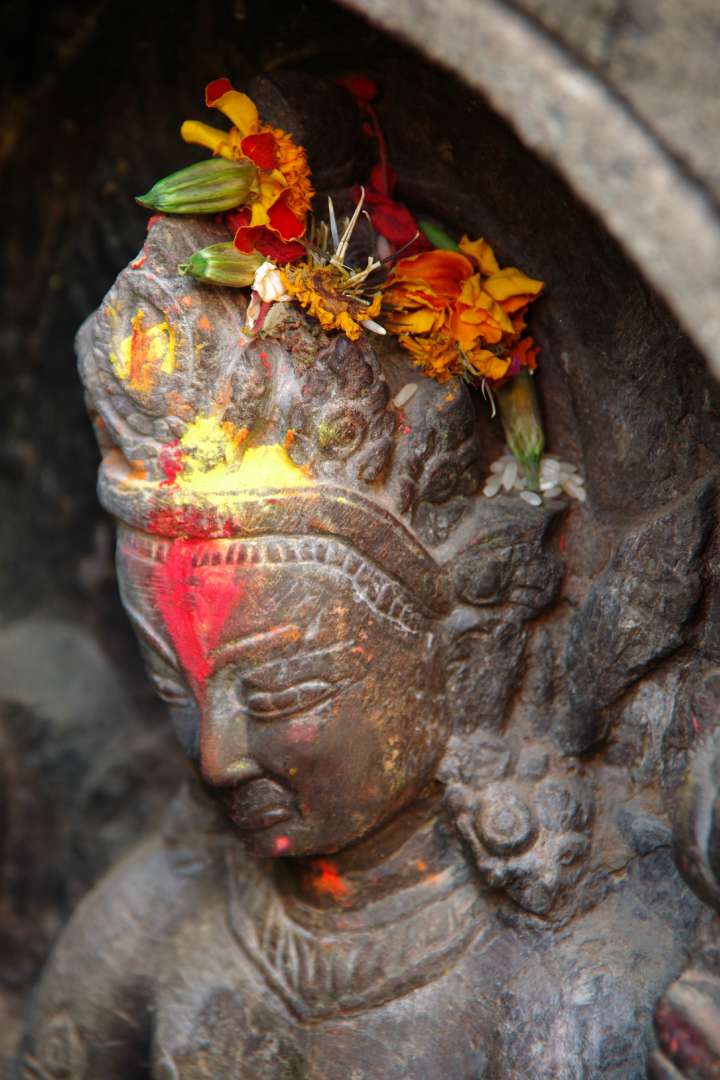

We actually drove back to Thamel by car, according to the motto "better poorly driven than well walked". Considering the many people who now only travel on the roofs of buses from A to B, our situation was quite cozy. We did a lot of shopping that day, and all five of us went back home two days later with beautiful North Face cosmetic bags and travel bags.
Bhaktapur and Panauti
They always say that the best comes last, and this seemed to be true for Nepal. On the last real day of our vacation, we went to Bhaktapur in a comfortable SUV. We had to pay the obligatory entrance fee there too, and we were amazed. To get to the old town, you actually have to climb a few steps.
Of course, there were some damages here too, but overall, the old town around the Durbar Square looked very beautiful and is certainly one of the cultural highlights in Nepal.
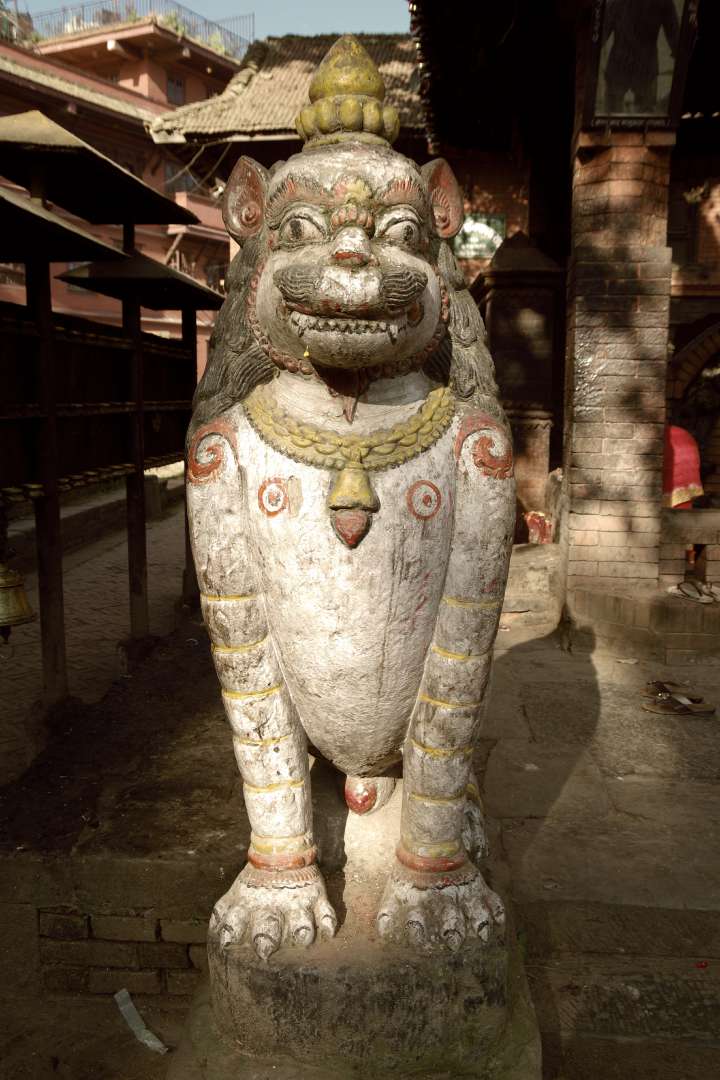
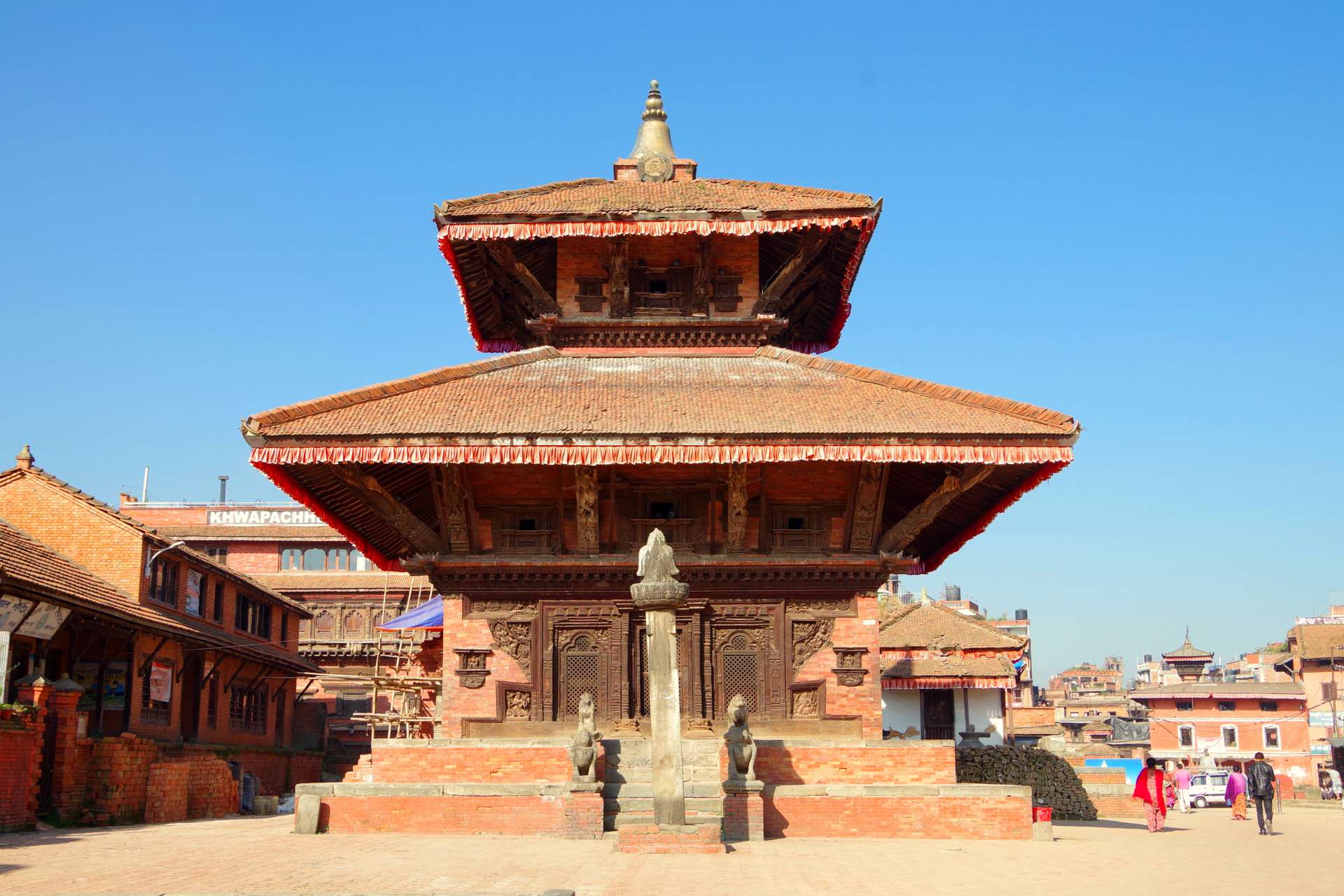
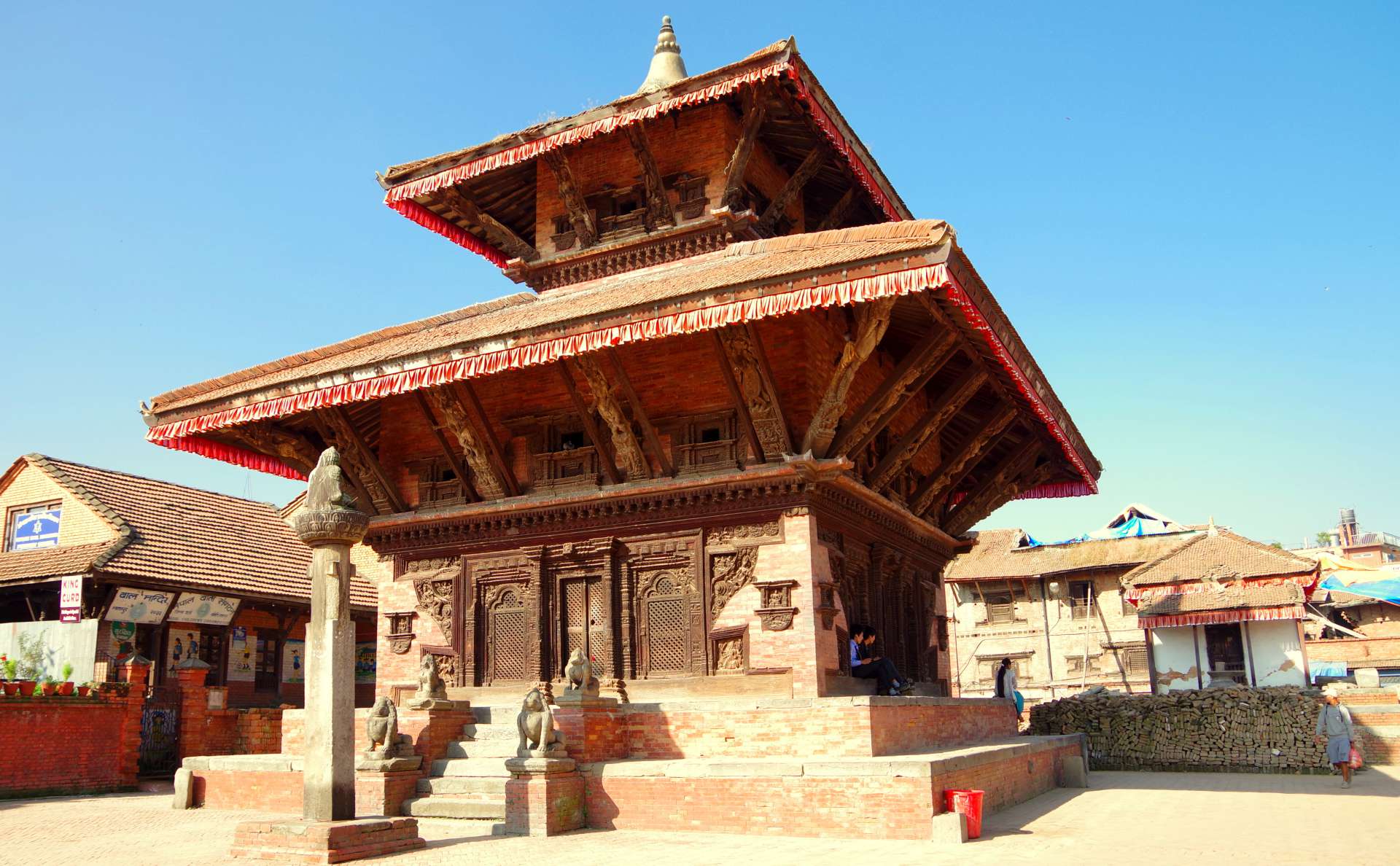
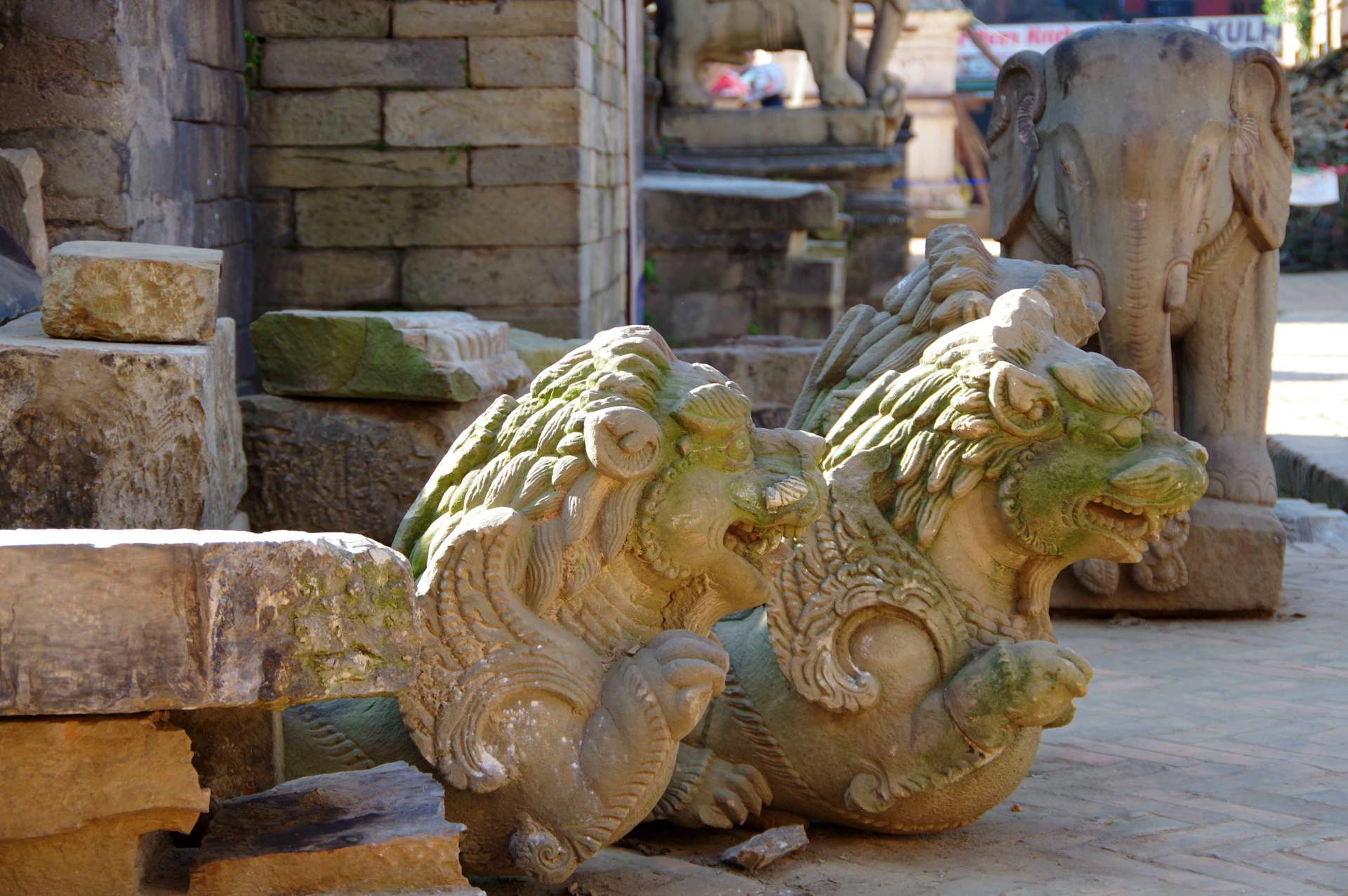
There were very few tourists in the city, so we were able to take in the sights without crowds.
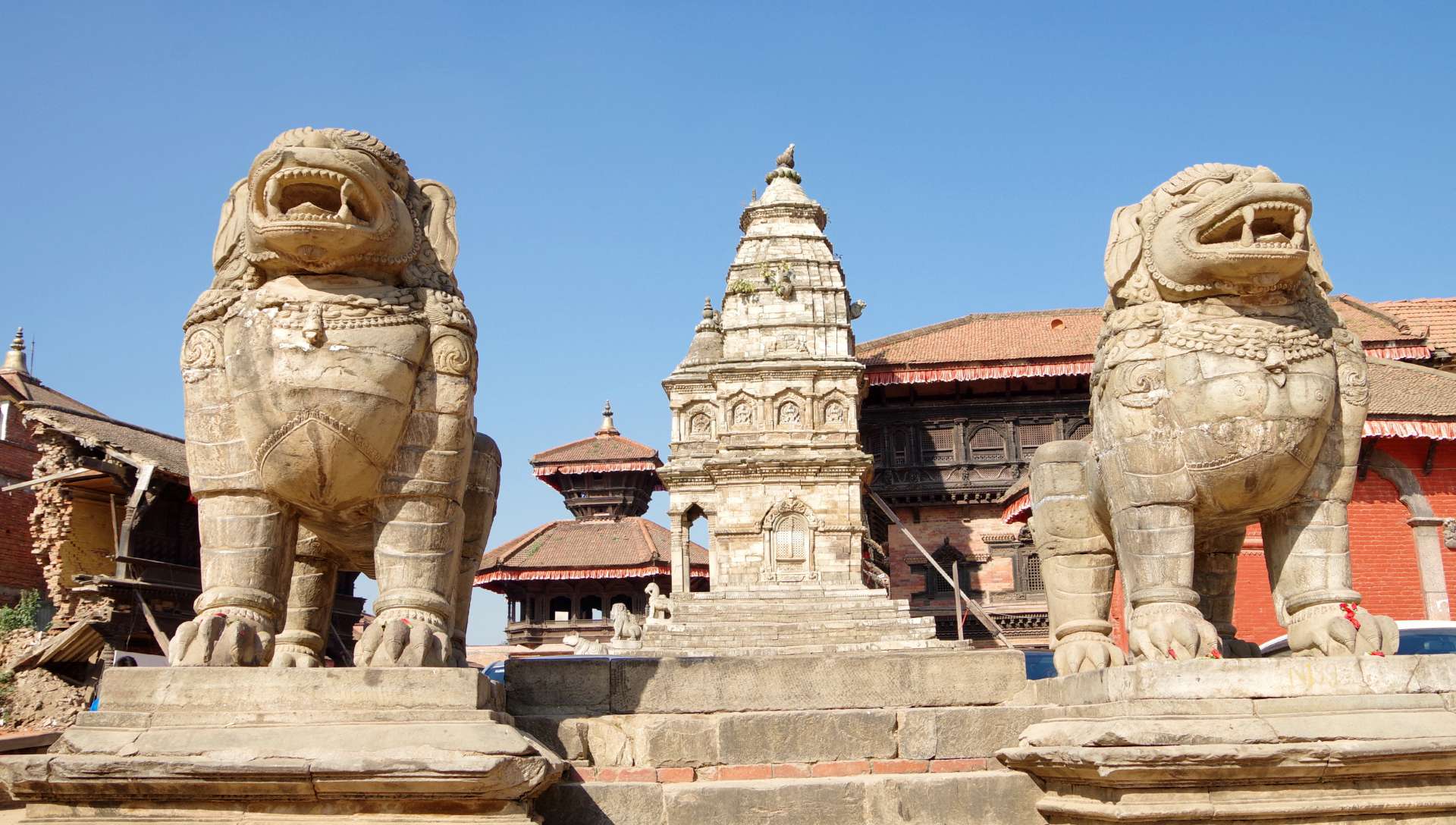
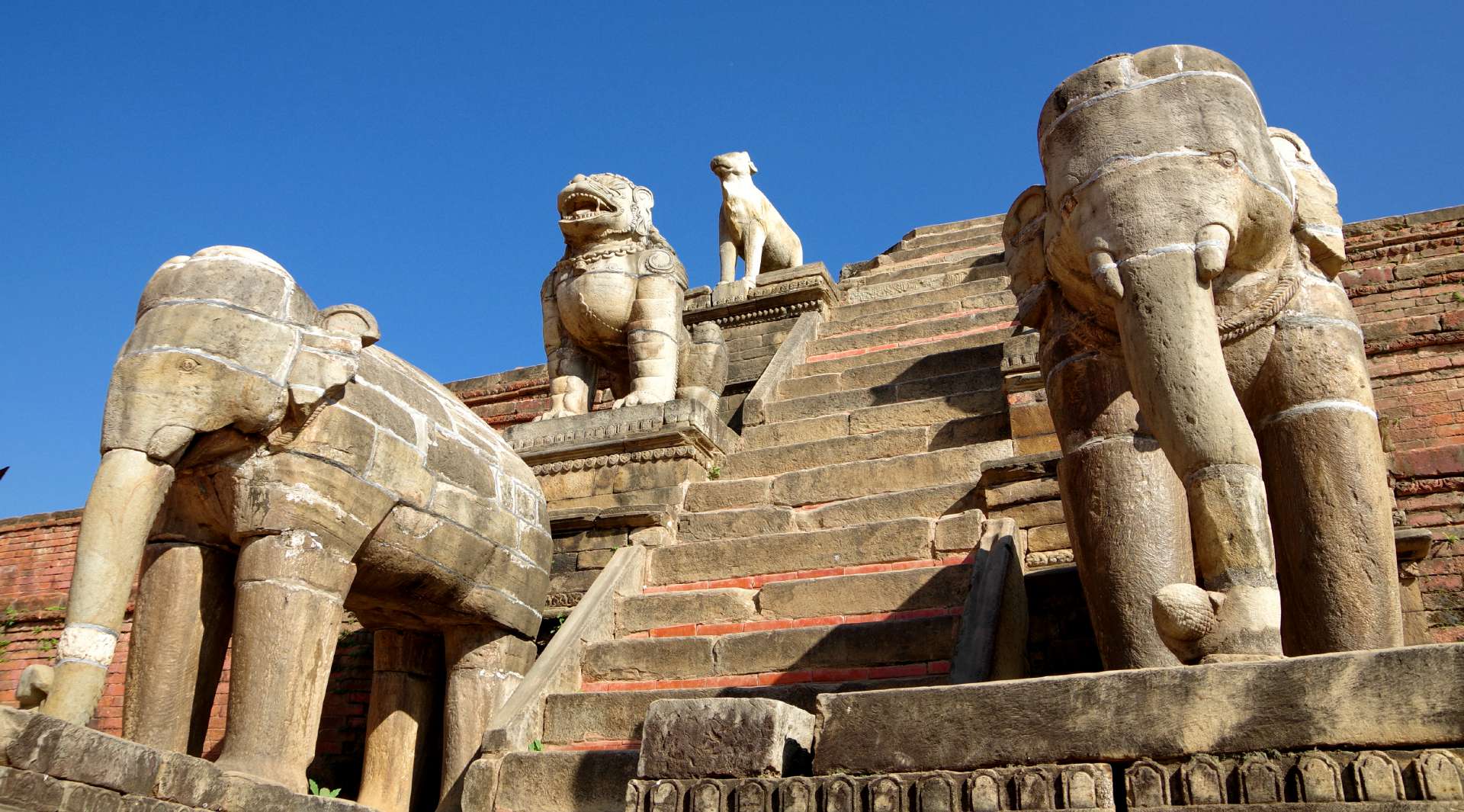
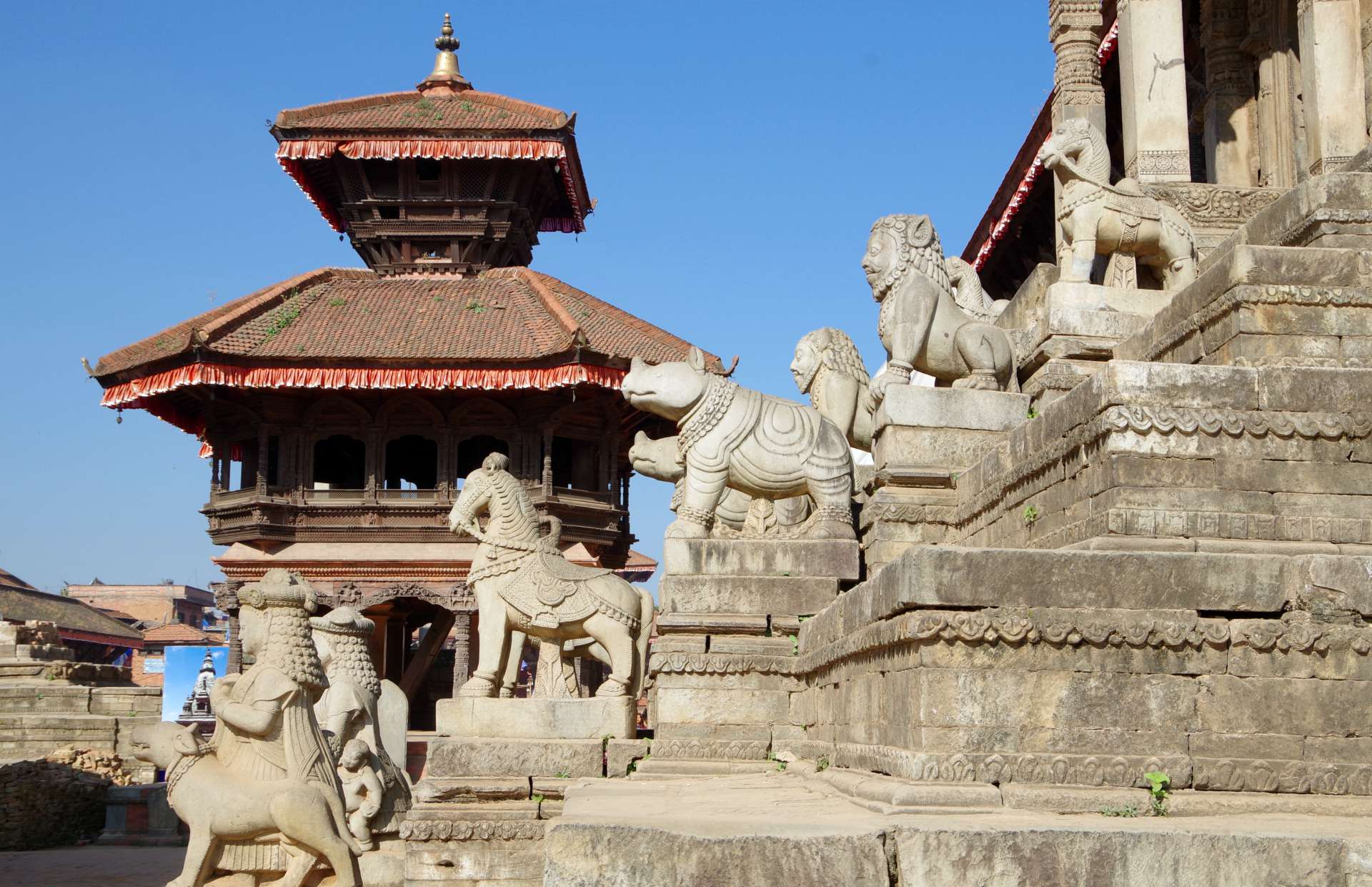
We visited Taumadni Square with its landmark, which thankfully was NOT destroyed.
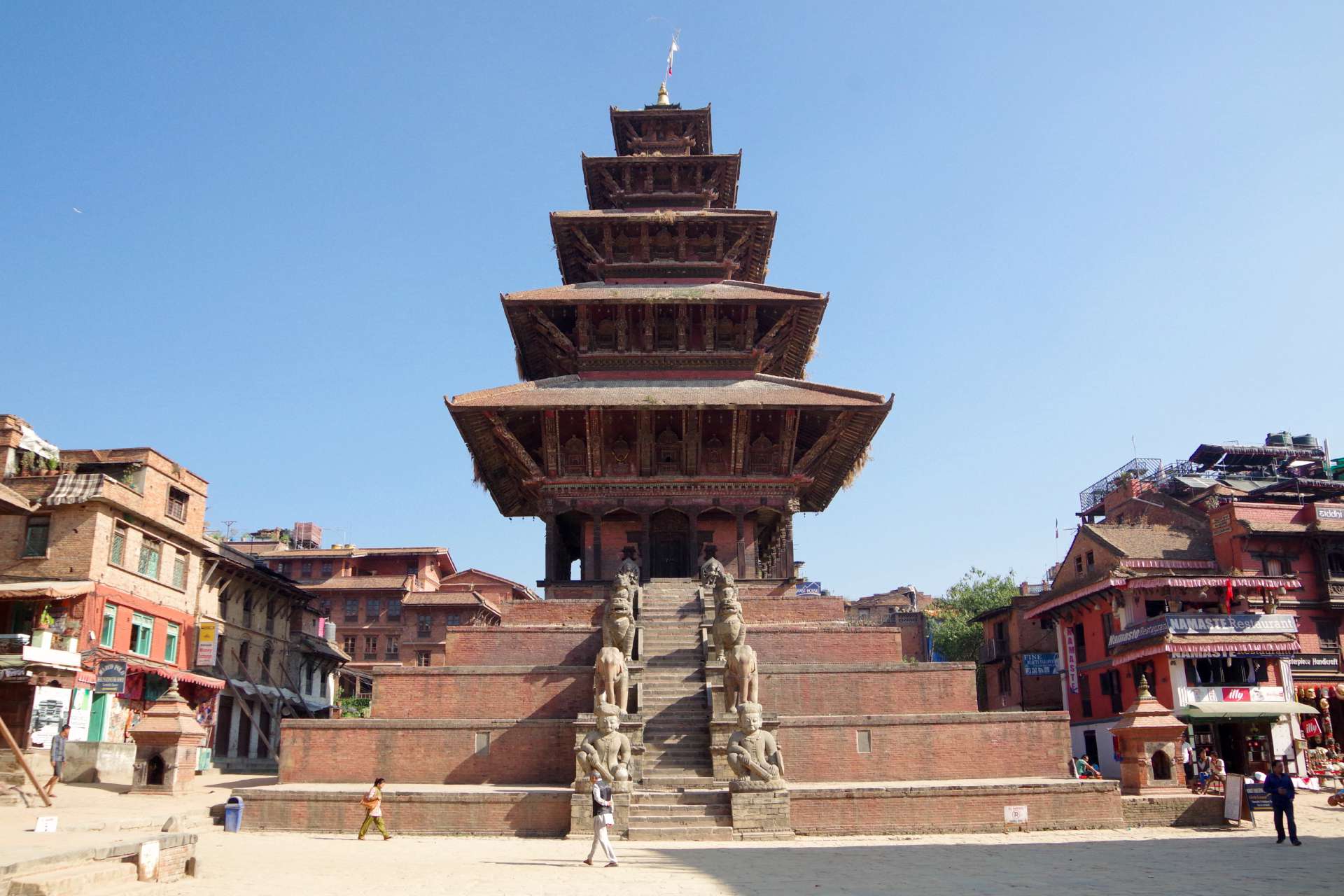

The potter's square was also impressive, it's hard to imagine that so many pottery items are still bought in the age of plastic and cardboard.


After strolling to the Dattatraya Square, we drove on to Panauti.

Enjoyed a beautiful view of the Kathmandu Valley on the way and once again stood in a long traffic jam.

Here too, the diesel problem... with a travel time of over an hour, we finally made it. We were greeted by the relatively plain Newari town without any tourist infrastructure. Even the hotel was closed, we were only allowed to visit the local bar - without light, because there was no light bulb.

In the past four weeks, luck was often on our side, and today was no exception. It was harvest time in the countryside, so we could admire not only undamaged village architecture but also the activities of the locals... beautiful moments that once again made us realize that people in other parts of the world are perfectly content with so much less.

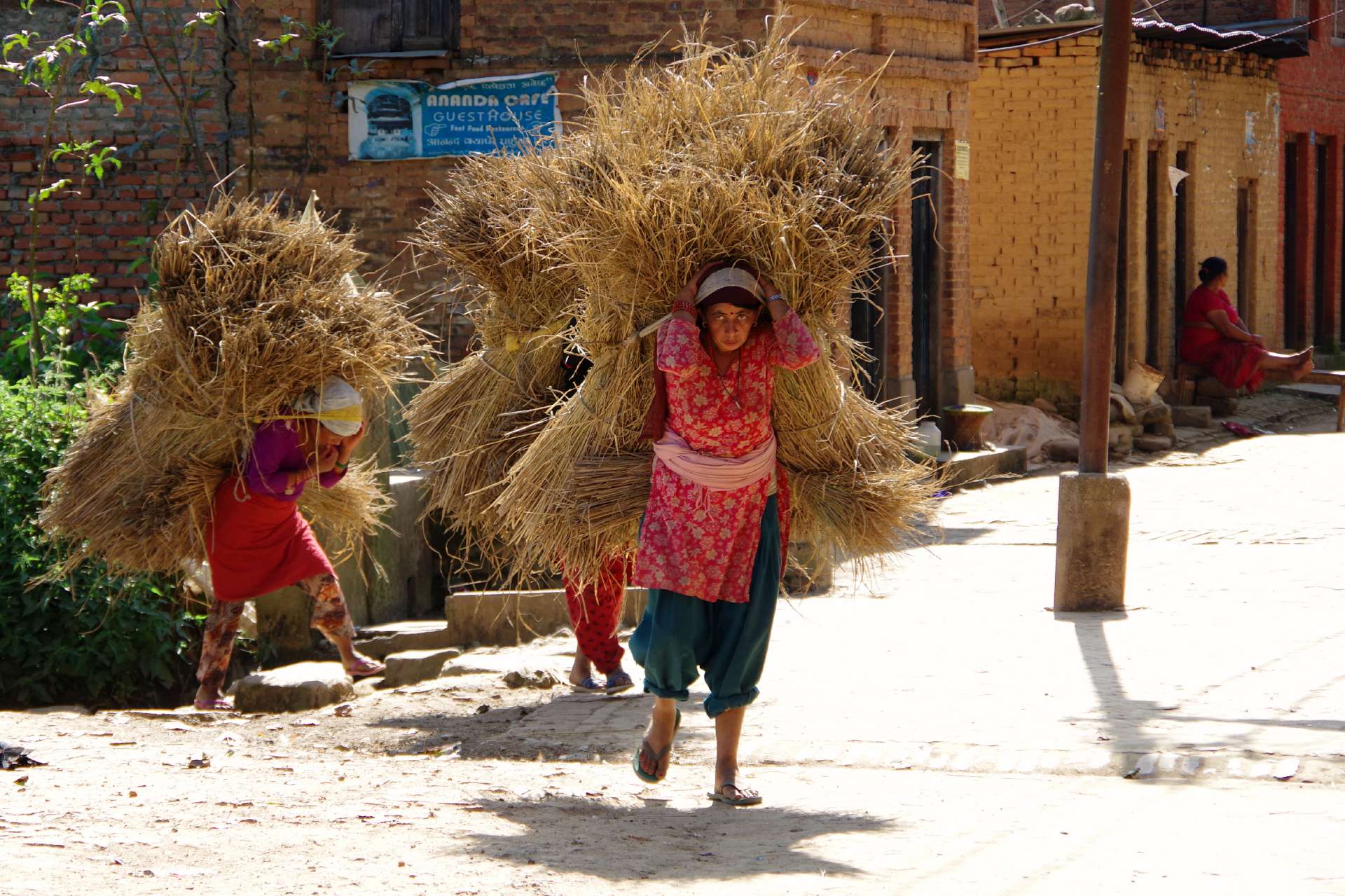
With these beautiful experiences, our Nepal tour came to an end. The next morning, we took our return flight to Germany. For the first time, we fell victim to the diesel problem and had to endure an unplanned stopover in New Delhi, as that was where the plane could be refueled.
Abonnez-vous na Bulletin ya Sango
Eyano
